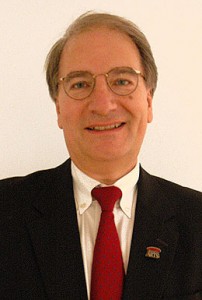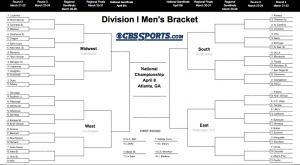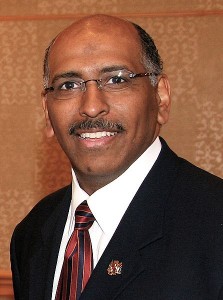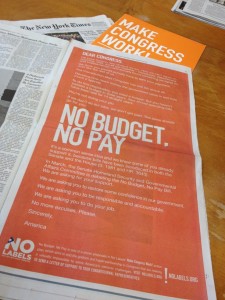Six years ago, I withdrew from the 2007 Democratic gubernatorial primary to endorse Steve Beshear’s candidacy. I later had the honor to serve for three years as his Secretary of Finance and Administration. While Governor Beshear has done a very good job helping the Commonwealth weather the worst economic storms of my lifetime, I believe that this is his finest moment.
As always, but especially today, I am proud to call Steve Beshear a friend and my Governor.
Beshear’s veto faces a potential override by the Kentucky General Assembly. Much as many of you joined me in urging the Governor to veto this bill, I strongly advise you to contact your legislator over the weekend and urge him or her to refuse to override the Governor’s veto.
Please understand that many who voted “yes” did not comprehend the unintended consequences of the bill, and/or may have been afraid of the public backlash of voting for a bill that purports to uphold “religious freedom.” It is our responsibility as citizens to educate our elected officials in a civil and respectful way. Please join me.
FRANKFORT, Ky. (March 22, 2013) — Governor Steve Beshear vetoed House Bill 279 today, noting its well-placed intentions but possible significant unintended consequences.
“Religious freedom is a cornerstone of this great nation, and a right enshrined in both the United States Constitution and the Kentucky Constitution,” said Gov. Beshear. “I value and cherish our rights to religious freedom and I appreciate the good intentions of House Bill 279 and the members of the General Assembly who supported this bill to protect our constitutional rights to practice our religion. However, I have significant concerns that this bill will cause serious unintentional consequences that could threaten public safety, health care, and individuals’ civil rights. As written, the bill will undoubtedly lead to costly litigation. I have heard from many organizations and government entities that share those same concerns. Therefore, after giving this measure thoughtful analysis and consideration, today I vetoed the bill.”
HB279, sent to the Governor on March 11, would allow an individual to disregard any state or local law that places a substantial burden on his or her sincerely held religious belief. As written, the government would have to show by “clear and convincing evidence” that the state has a compelling interest in requiring the person to follow the established law,and that there is no less restrictive means to accomplish the government’s objective.
Federal law and HB279 are fundamentally different
Supporters have referenced the federal Religious Freedom Restoration Act (RFRA) and similar state RFRA laws as the template for this legislation. However, Gov. Beshear noted that House Bill 279 is fundamentally different than those laws – mostly because the vague language of HB279 lends itself to overly broad applications.
As written, HB279 imposes a heightened standard of “clear and convincing proof” to evaluate compliance with a law that contains an unclear definition of “burden,” which invites costly and possibly lengthy legal challenges. The bill offers no exceptions for certain state agencies or civil rights laws. There are no exceptions for the protection and safety of the general public, such as public health standards.
“Imprecise legal standards lead to unforeseen consequences,” said Gov. Beshear. “Citizens and governmental entities are entitled to a clear understanding of the boundaries of permissible conduct. This bill, as written, while well intended, is undermined by precarious legal wording,” said Gov. Beshear.
Possible Unintended Consequences
Groups as varied as the Kentucky Association of Sexual Assault Programs, Inc. to theNational Association of Social Workers-Kentucky Chapter to the Center for Accessible Living have called on the Governor to veto the bill, citing concerns including:
- · Weakening of local civil rights laws;
- · Impact on implementation of the new Common Core Standards in our schools;
- · Negative impact to economic development efforts;
- · Adverse impact on enforcement of drug laws;
- · Additional financial burdens on local governments; and
- · Possible withholding of needed medical care or use of religion as a justification for abuse.
State government agencies also expressed concerns to the Governor that this bill could:
- · Increase litigation costs;
- · Decrease federal funding; and
- · Threaten public health, including refusal to provide needed medication or services.
Despite his veto, Gov. Beshear expressed a willingness to work with supporters to develop a bill that might mitigate these unintended consequences. “I urge supporters and opponents of this legislation to come together before next session and find compromise legislation that protects religious freedom, while avoiding the possible unintended consequences of House Bill 279, and I pledge to work with them to find that compromise,” he said.
The following groups and elected officials urged the Governor to veto the measure, orexpressed their concerns about the bill to the Governor:
Kentucky Association of Counties
Kentucky County Judge/Executive Association
Kentucky League of Cities
Kentucky Magistrates & Commissioners Association
Kentucky Association of Sexual Assault Programs, Inc.
Kentucky Commission on Human Rights
Kentucky Education Association
Jefferson County Teachers Association (JCTA)
Center for Accessible Living, Inc.
Hispanic-Latino Coalition
Lexington-Fayette Urban County Human Rights Commission
Louisville Metro Human Relations Commission
National Assoc. for the Advancement of Colored People (NAACP)—Louisville Branch
National Association of Social Workers-Kentucky Chapter
United Food and Commercial Workers Local 227
1st District Councilwoman Attica Scott—Louisville Metro
21st District Councilman Dan Johnson—Louisville Metro
26th District Councilman Brent Ackerson-Louisville Metro
3rd District Councilwoman Mary C. Woolridge—Louisville Metro
6th District Councilman David James—Louisville Metro
9th District Councilwoman Tina Ward‐Pugh—Louisville
AIDS Volunteers of Lexington
American Civil Liberties Union of Kentucky
Americans United for the Separation of Church and State
Bereans for Fairness
Bluegrass United Church of Christ
Catholics for Fairness
Central Presbyterian Church, Louisville
Children’s Healthcare is a Legal Duty
The Church of Christ, Union (Union Church, Berea)
Douglass Boulevard Christian Church
Episcopal Church of the Advent, Louisville
Fairness Campaign
Faith Leaders for Fairness
Franklin/Simpson Human Rights Commission
Gay and Lesbian Services Organization (GLSO)
Jewish Community Relations Council of Louisville
Journey Fellowship, Owensboro
The Harvey Milk Society of Berea College
Kentuckians For The Commonwealth (KFTC)
Kentucky Alliance Against Racist and Political Repression
Kentucky Equality Federation
Kentucky Fairness Alliance
Kentucky Feminists United
Kentucky Jobs With Justice
Kentucky Religious Coalition for Reproductive Choice
Kentucky Secular Society
Kentucky Special Parent Involvement Network (KY–‐SPIN)
Kentucky Young Democrats
Lambda Legal Defense and Education Fund
Lexington Fair Housing Council
Lexington Fairness
Louisville Atheists and Freethinkers
Louisville Metro Council President Jim King
Louisville Metro Human Relations Commission Advocacy Board
Louisville Metro Human Relations Commission Enforcement Board
Louisville Showing Up for Racial Justice (LSURJ)
Mayor Greg Fischer, Louisville Metro Government
Mayor Sherry Carran, City of Covington
Metro Louisville Women’s Political Caucus (MLWPC)
Northern Kentucky Democratic League
Parents and Friends of Lesbians and Gays (PFLAG)—Lexington Chapter
People Associating Together In Owensboro (PATIO)
Planned Parenthood Federation of America
Planned Parenthood of Kentucky
Quaker Committee for Kentucky Legislation
Richard Meadows, Fayette County Commissioner
Shevawn Akers, LFUCG Council Member
SteinGroup LLC
The Women’s Network
Unitarian Universalist Church of Lexington
Women In Transition (WIT)
Women’s Leadership Conference for Religious Freedom (WLCRF)
 Pin ItWe cannot own our future when we live off the credit of countries who want to dominate us; and freedom is neither tired nor exhausted: it is just tired of not being defended.
Pin ItWe cannot own our future when we live off the credit of countries who want to dominate us; and freedom is neither tired nor exhausted: it is just tired of not being defended.
















